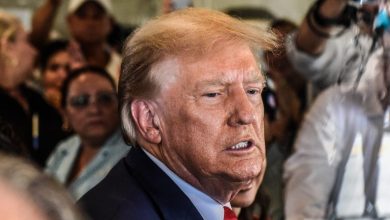Krugman: Inflation Remained Unaffected by Fed Rate Hikes as Pandemic Shocks Subsided

Renowned economist Paul Krugman recently argued that the fears surrounding inflation sparked by the series of Federal Reserve rate hikes were unwarranted. In an op-ed piece, Krugman pointed out that inflation did not skyrocket as predicted and instead, the pandemic shocks that hit the global economy had a more significant impact on curbing inflation.
In recent years, there has been a persistent concern among economists and policymakers about the potential risks of inflation. As a result, the Federal Reserve took a more hawkish stance, gradually raising interest rates to control the economy and prevent inflation from spiraling out of control. However, Krugman suggests that this approach was unnecessary and even counterproductive.
Firstly, Krugman highlights that inflation remained relatively subdued, despite the rate hikes. This was contrary to the expectations of many who believed that higher interest rates would lead to a surge in prices. In fact, inflation levels in the years following these rate hikes were well below the target set by the Federal Reserve, indicating that the fears were unfounded.
Furthermore, Krugman argues that the pandemic shocks and subsequent economic downturn had a far more significant impact on inflation than any rate hikes. When lockdowns were implemented and businesses shuttered, both supply and demand were severely affected, resulting in a deflationary environment. With reduced consumer spending, businesses found it increasingly difficult to raise prices, leading to a slowdown in inflationary pressures.
Krugman’s argument suggests that the Federal Reserve may have been overly cautious in its approach to raising interest rates. Instead of focusing solely on inflation concerns, the central bank should have taken into account the broader economic conditions, including the impact of external shocks.
However, it is important to note that Krugman’s view is not shared by all economists. Some argue that the rate hikes played a crucial role in preventing inflationary pressures from building up, albeit at the cost of slower economic growth. These economists believe that the role of monetary policy is to maintain price stability and that the rate hikes were a necessary tool in achieving that objective.
Nonetheless, Krugman’s analysis sheds light on the importance of considering the broader economic context when formulating monetary policy. The pandemic shocks have demonstrated that external factors can have a more significant impact on inflation than previously anticipated. As policymakers navigate the post-pandemic economic recovery, understanding these dynamics will be key in preventing unnecessary actions and ensuring stability.
In conclusion, Krugman’s argument challenges the conventional wisdom surrounding inflation and the impacts of the Federal Reserve’s rate hikes. His analysis suggests that the fears of runaway inflation were overblown and that the pandemic shocks had a more substantial effect on curbing inflation. While alternative perspectives exist, considering the broader economic context is crucial in formulating effective monetary policy and maintaining stability in the face of future shocks.




